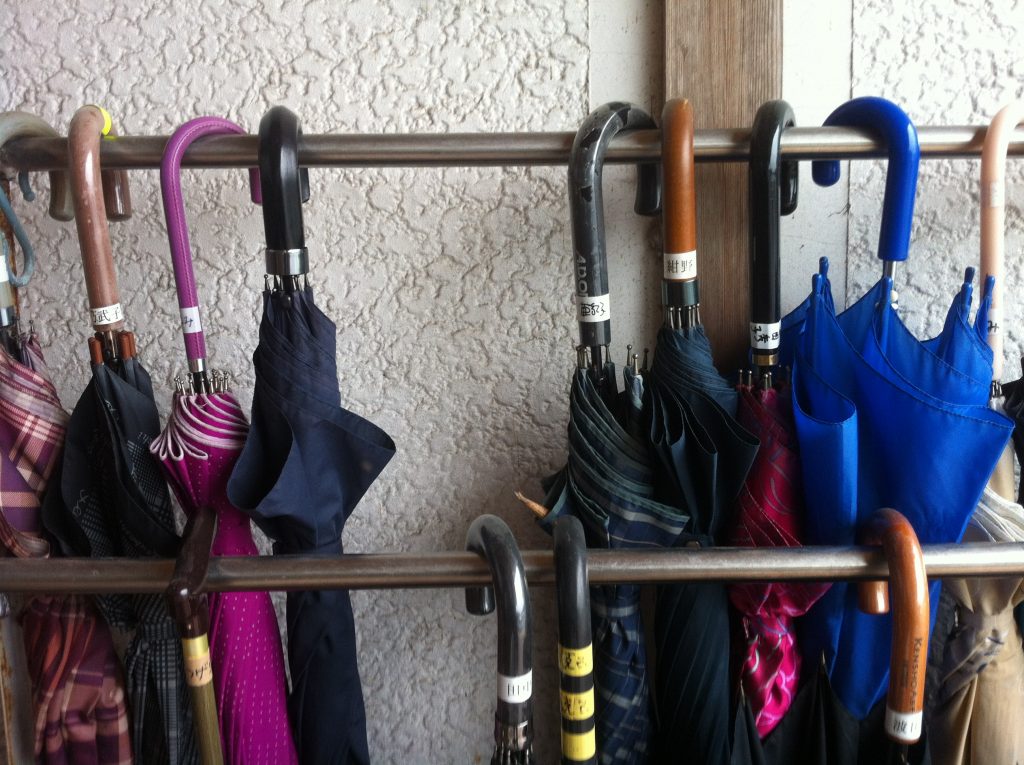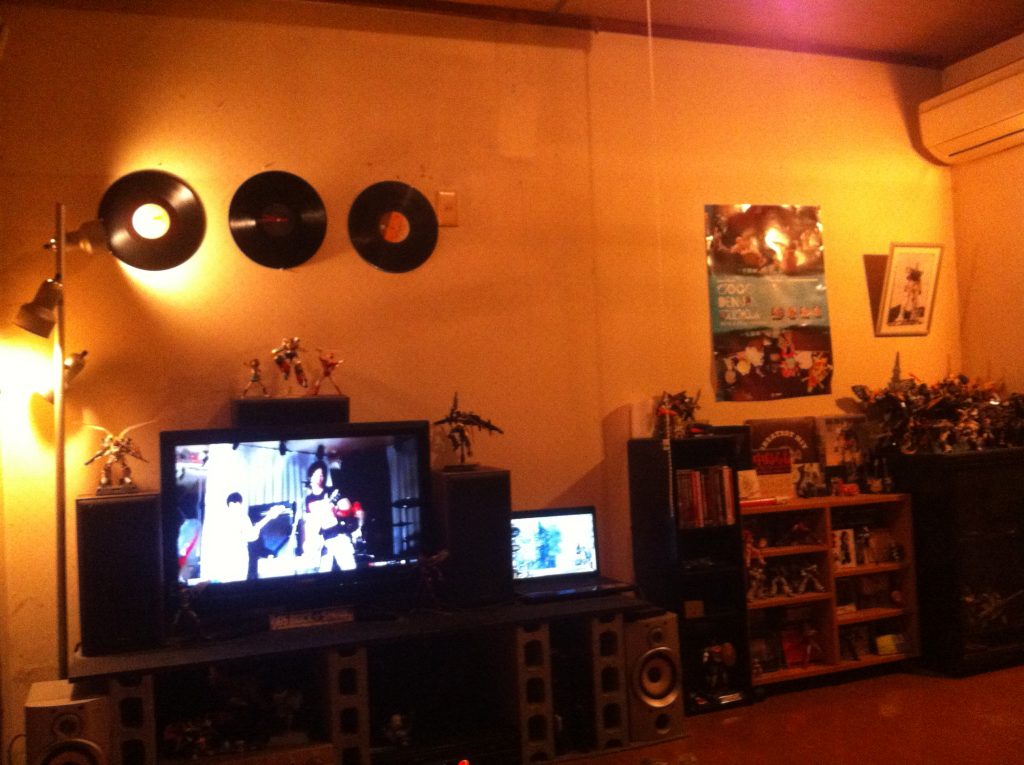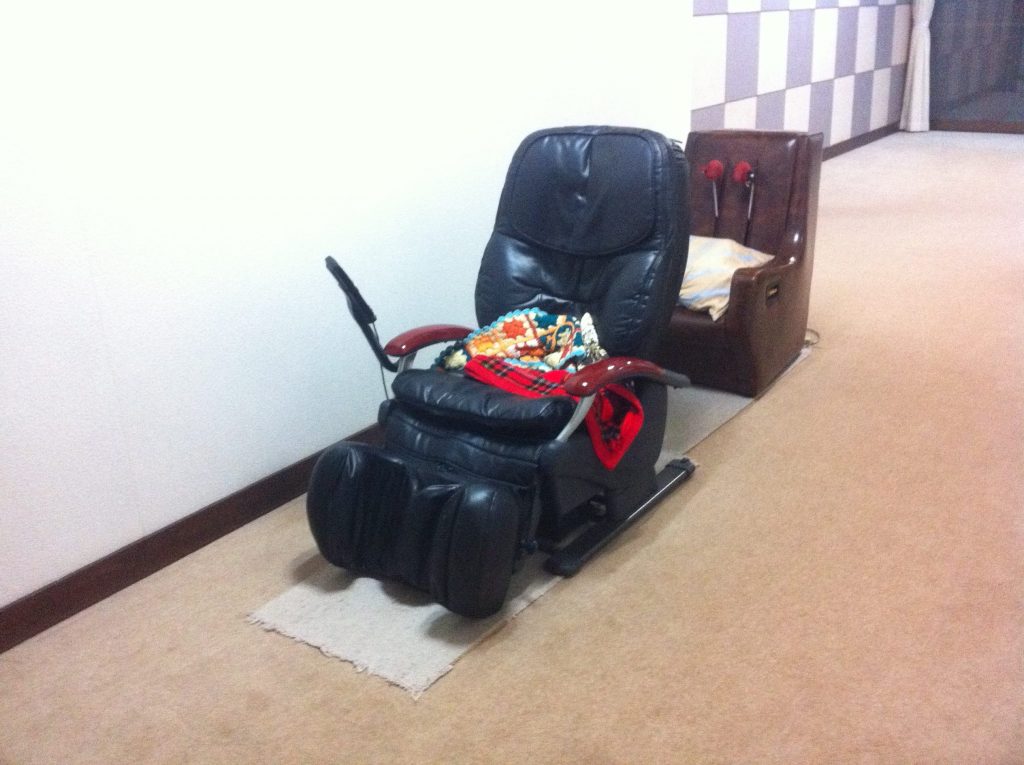所有権 Ownership

Umbrellas at the entrance of the building where I’m staying these days. Each of them has its owner’s name on a label.
Joining the Yamagishi Association formally (meaning, deciding to come and live on a Yamagishi “jikkenchi” community) is a long and multi-step process, which starts with the tokkoh; one must then attend the two-week “kensan school”, in order to further ponder the questions raised during the first step, while working together with a group of people on various agricultural activities; and finally comes a three-month probational period, in which the aspiring member and their future “jikkenchi” try each other out to ensure compatibility of minds.
If all goes smoothly and there is mutual liking, the new member is then supposed to symbolically donate all of their assets to the Association, for the mutual good. But no check is conducted by anyone, as the donation is meant as a proof of faith — so it is theoretically possible to only donate a percentage of one’s assets.
I was quite surprised, on my visits to the homes of my fellow ‘villagers’ here in Kasugayama, to find very snug and cozy rooms, as comfortable and well-decorated than anywhere else in Japan — including all sorts of modern appliances such as video projectors, hi-fis, computers, not to mention plenty of books and CDs. My hosts treated me to wine and chocolate and all sorts of delicacies.
This is probably one of the aspects of Yamagishism trickiest to understand: people live without money in their private possession, and there is no formal leadership structure controlling the assets of the Association (which receives an income from selling its produce, such as vegetables, noodles, meat, and the such); and yet, through a decentralized process of interpersonal discussion and negociation (involving colleagues at one’s work unit, one’s fellow building residents, etc.), it is entirely possible for someone to receive a sum of money collectively considered acceptable in order to purchase the daily necessities of life outside the “jikkenchi” (by driving one of the collectively-owned cars), as a form of stipend.
As there is no strict set of rules in this regard, nor formal hierarchy, this consensus-based process seems very flexible; but a certain commonly-shared sense of proportions makes it more difficult to acquire more costly items that would be used mostly individually — such as a videoprojector, for instance. Purchasing those pricier and less necessary things for one’s private use might require one to go work for a while outside the jikkenchi, in order to earn the money they seek.
But if one simply wants to enjoy a few bottles of wine a month, a tastefully decorated interior, furniture, books and clothes, things can definitely be arranged. In any case, as all couples inhabit apartments the same size (and so do all single people), there is only so much free space left to accumulate things.
Everybody shares common toilets and bathrooms, which are as a rule high-tech and immaculate; a collective laundry service washes and dries clothes overnight; two tasty and filling meals are provided communally everyday (although nobody is forced to join in); and of course, any and all medical bills are footed by the Yamagishi Association.
All in all, private/public assets seem very nicely balanced, and things work with remarquable efficiency. I only wonder how necessary are deep-rooted Japanese cultural values, such as consensus-building and a strong sense of industry, to the success of this model… I feel increasingly curious about the other “jikkenchi” that have opened in Australia, Thailand, Switzerland and Brazil.




